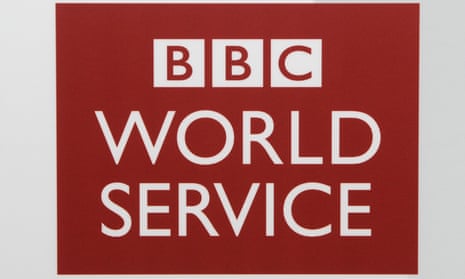For Iranians suffering a violent crackdown by a repressive regime opposed to free speech, independent media and open debate, trusted sources of unbiased, factual information are of critical importance. For this and other reasons, last week’s announcement that the BBC is to end Persian language radio broadcasts is both dismaying and shortsighted.
The decision formed part of a wider package of planned BBC World Service cuts that will also end radio broadcasts in leading languages such as Chinese, Arabic, Hindi and Indonesian. TV bulletins in Gujarati, Somali and Urdu will cease, too. In all, nearly 400 jobs will be lost, along with a considerable amount of journalistic and country expertise.
BBC managers said the £28m cuts were the result of years of below-inflation licence fee increases and the current licence fee freeze. They claimed the World Service would continue to deliver the “best journalism” in English worldwide, and would still be heard in 40 languages. Overall, it reaches 364 million people weekly – though it could be many more.
In the age of fake news and pervasive social media disinformation, such justifications will be no consolation to Iranians and non-English speakers unable to access reliable outlets. Yet the BBC is not solely to blame. These cuts were forced upon it by Conservative ministers who dislike the national broadcaster more than they value the national interest.
The BBC, and the World Service in particular, represents important soft power tools that are the envy of other democracies. They perform an important role in projecting Britain’s priorities and values abroad. They explain this country to the world and in doing so promote its ideas, culture and products. For the boosters of “Global Britain” to needlessly handicap the BBC by starving it of funds is strangely insular. Michelle Donelan, the new culture secretary, is to revisit the decision of her predecessor, Nadine Dorries, to abolish the licence fee – a sensible step, given there is no consensus about an alternative. Meanwhile, James Cleverly, the new foreign secretary, should revisit the ill-advised 2010 decision to halt most Foreign Office funding of the World Service.
Any such rethink should be expanded to include the £4.2bn in cuts to Britain’s foreign aid budget forced through by Boris Johnson and the ongoing freeze on “non-essential” international aid imposed when Liz Truss was foreign secretary. The reason is the same. Bilateral and multilateral assistance, directed by Cleverly’s FCDO, are potent soft power tools that advance UK global influence – so why sabotage them?
Cleverly should also take a serious look at this year’s devastating foreign affairs committee findings concerning the 2021 withdrawal from Afghanistan – which Truss never did. The committee identified “systemic failures” of diplomacy, intelligence and planning, for which it largely blamed the Foreign Office. Part of the problem was incompetent leadership by Dominic Raab, who was forced to resign.
Yet there’s a wider issue. The fact remains that FCDO diplomacy and humanitarian operations in places such as Afghanistan and Ukraine, UK international aid and development assistance, and the BBC’s global journalism – vital soft power tools – are all struggling with financial cuts. Their budgets, never generous, are under self-damaging pressure. This harms Britain at the very moment it needs all the clout it can muster in a hostile, disordered world.
In this penny-pinching context, the reported 45% increase in spending on Foreign Office credit cards while Truss was foreign secretary requires explanation. Payments included £10,000 at Fortnum & Mason and thousands more spent on posh restaurants and beauty products. What was Truss thinking? Here is another job for the Office for Budget Responsibility.
